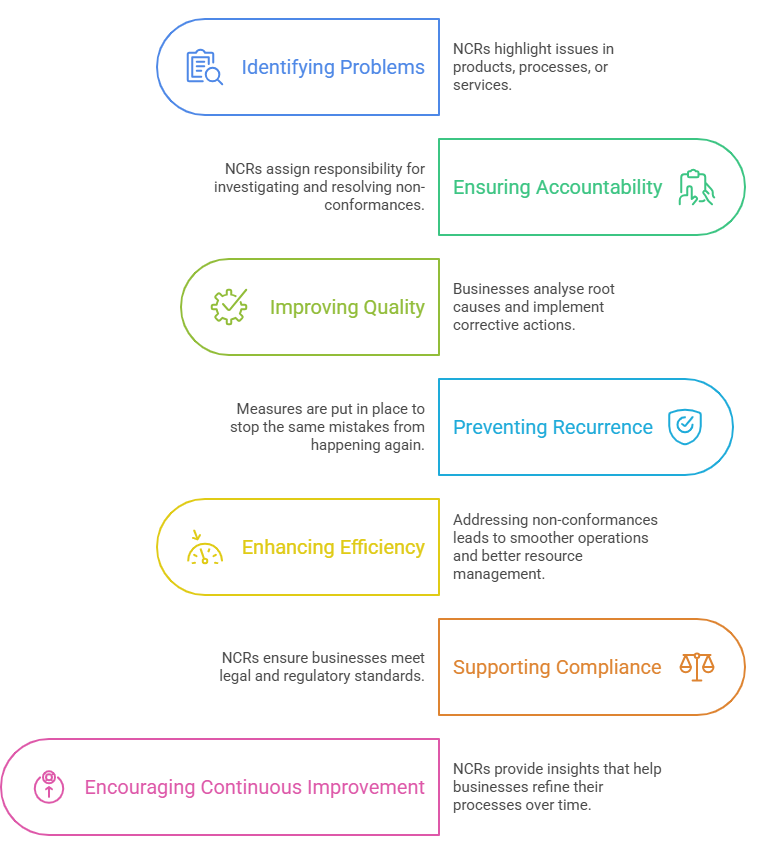The purpose of Non-Conformance Reports (NCRs) is to identify, document, and address deviations from expected standards in a structured way. They help businesses improve quality, prevent recurring issues, and maintain compliance with industry regulations.

By using NCRs effectively, businesses can turn setbacks into opportunities for growth and maintain high standards in their operations.
The Benefits of Using NCRs in South African Businesses
South African businesses can boost efficiency, strengthen compliance, and deliver high-quality products and services through effective implementation of NCRs.
Click on each heading below to reveal more information.
High-Quality Products
Ensuring High-Quality Products and Services
- Businesses in South Africa operate in competitive industries where quality matters.
- Whether in manufacturing, construction, food production, or healthcare, NCRs help identify and fix issues early, ensuring customers receive reliable, high-standard products and services.
Reduce Cost and Waste
Reducing Costs and Preventing Waste
- Mistakes in production, supply chains, or service delivery can be costly.
- NCRs help businesses catch problems before they escalate, avoiding unnecessary expenses from rework, product recalls, or wasted materials.
- In sectors like agriculture and retail, this means better resource management. and improved profitability.
Risk Management
Managing Risks and Ensuring Safety
- South African workplaces, from mines to factories, must comply with safety and environmental regulations.
- NCRs play a critical role in identifying hazards, addressing unsafe conditions, and preventing future incidents, helping businesses protect employees and remain compliant with Occupational Health and Safety (OHS) laws.
Compliance
Simplifying Compliance and Audit Preparation
- Industries such as construction, healthcare, and food processing must meet SABS standards, environmental laws, and industry-specific regulations.
- Keeping accurate NCR records makes audits easier, reducing stress and improving transparency during inspections by regulators or clients.
Quality Culture
Building a Strong Quality Culture
- A business committed to quality grows stronger over time.
- NCRs encourage employees to report issues openly without blame, ensuring problems are solved efficiently.
- This fosters a culture where continuous improvement is the norm, helping businesses build trust. with customers and remain competitive.
Here, we learnt about the the key purpose of an NCR in a business.
Click on “Mark Complete ✓“ to move onto the next lesson.

